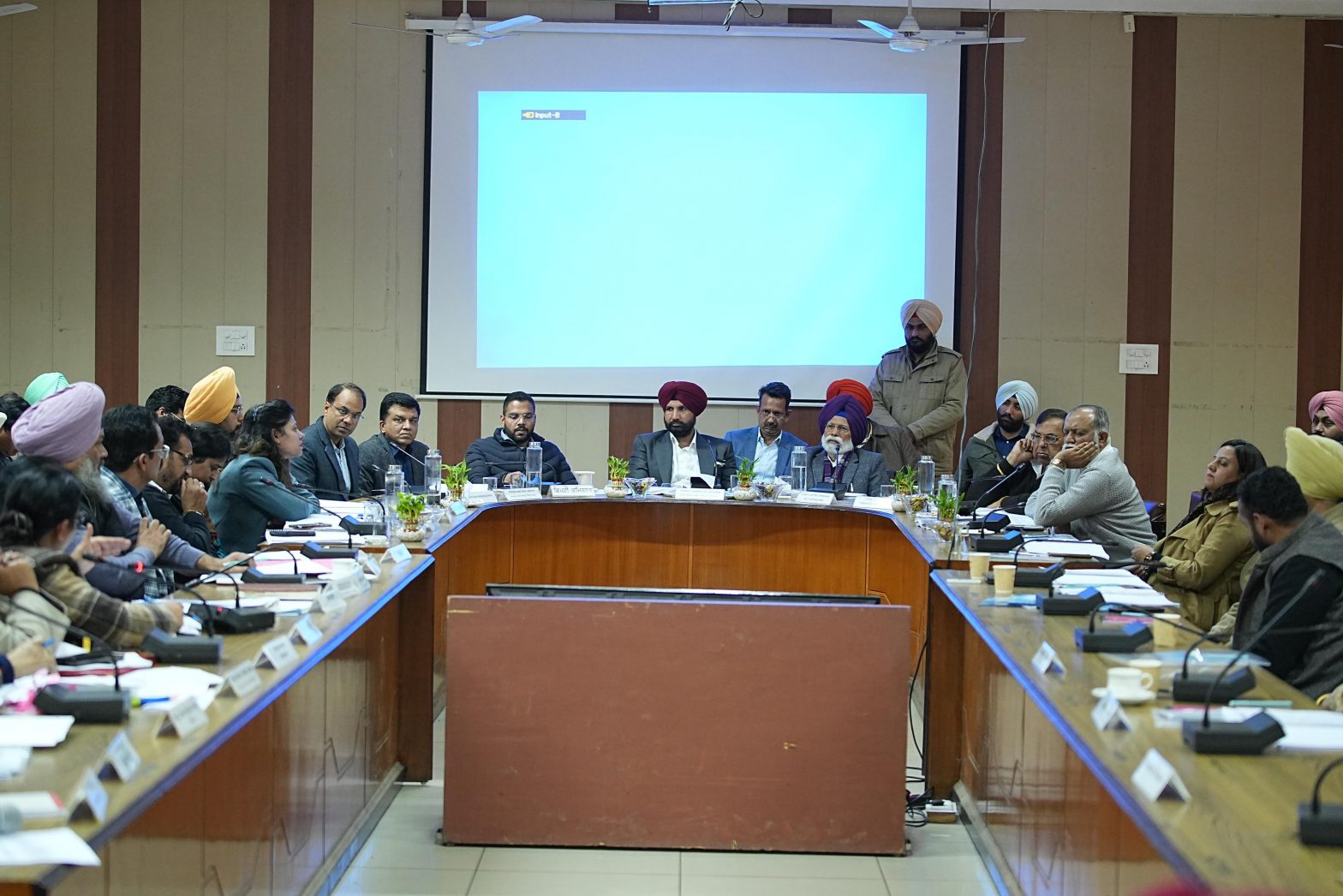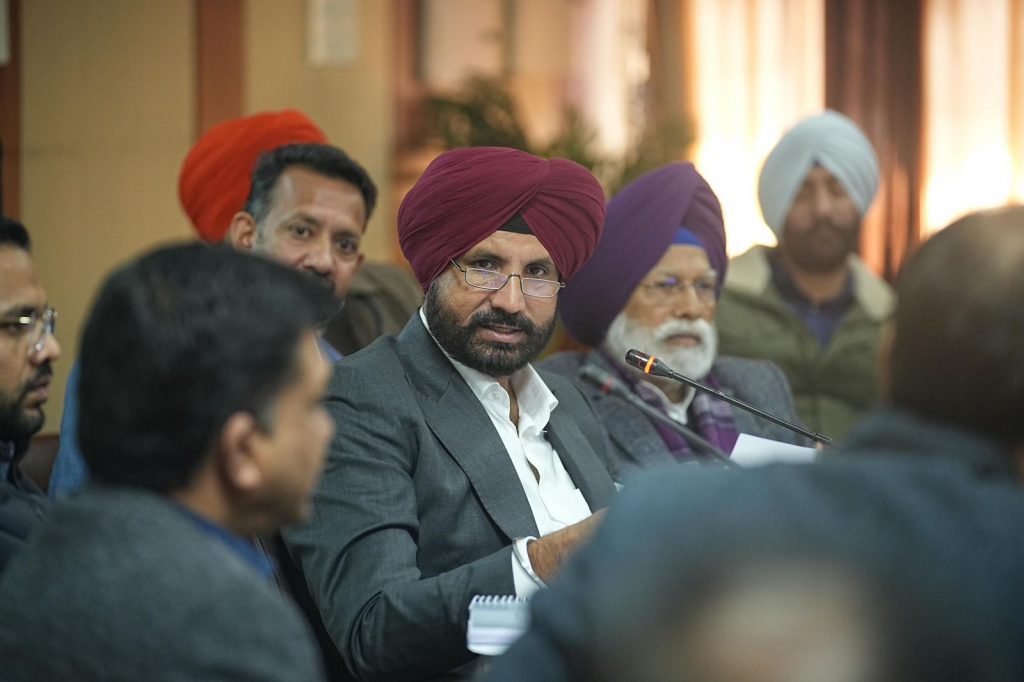
Ludhiana:
Member of Parliament from Ludhiana, Amarinder Singh Raja Warring expressed his dissatisfaction with the progress under the Smart City vision document while chairing the District Development Coordination and Monitoring Committee (DISHA) meeting at Bachat Bhawan, District Administrative Complex, Ludhiana, on Friday.
The meeting was co-chaired by Dr. Amar Singh, the Member of Parliament from Fatehgarh Sahib.
During the meeting, MP Warring, while addressing the attendees said, “Despite executing projects worth Rs 900 crore, Ludhiana remains plagued by pollution, congestion, and inadequate safety measures. The vision of making Ludhiana bicycle-friendly and improving healthcare infrastructure is far from reality,” he remarked. He acknowledged the installation of LED lights and solar panels as steps in the right direction but emphasized that funds could be better utilized to address the core issues of the city.
Highlighting Ludhiana’s inclusion in the list of the top 10 most polluted cities in the country, Raja Warring called for immediate action to mitigate pollution.
Warring also stressed the importance of annual maintenance contracts (AMCs) for all ongoing and executed projects and demanded a detailed report to ensure proper maintenance. “Execution is the responsibility of the officers, and as the MP, I will handle all political issues. However, it is crucial that we work collectively to achieve tangible results for Ludhiana,” he asserted.

The Ludhiana MP underscored his commitment to resolving the long-standing issues of the Buddha Nullah, declaring it his top priority. He announced a special meeting on January 29 to review the Smart City Project and discuss the Buddha Nullah before the upcoming Parliament session starting February 1. “We must secure the necessary funds from the Central Government and ensure that all members work dedicatedly toward the revival of the Buddha Nullah,” he stated firmly.
During his review of the Mid-Day Meal Scheme, MP Warring emphasized, “To uphold proper health standards, it is crucial that Mid-Day Meals for school children be prepared using mustard oil instead of refined oil. While I intend to raise this matter in Parliament, it is imperative for principals to take immediate action by ensuring procurement of mustard oil to ensure these measures are implemented without delay.”
Reviewing the works of the Department of Social Security and Welfare, the MP pointed out the limited awareness regarding state and central pension schemes. “When people are eligible for both state and central pensions, why are they not receiving these benefits?” he questioned. He instructed the department to organize awareness camps across Ludhiana to ensure maximum outreach. Responding to his concerns, the DC assured that eligible candidates would be screened, and their forms filled to extend benefits.
The meeting reviewed the progress and implementation of several key schemes and projects, including the Smart City Project, PMGSY, SSA, RAMSA, Mid-Day Meal Scheme, NSAP, ICDS, NRDWP/SBMG, PMAY-G, DDUGJY, PMKSY, DILRMP, MGNREGA, R Urban Mission, DDU-GKY, PMUY, NRLM, NHM, PMEGY, SAGY, and PMAGY, besides others.
Shortcomings in MGNREGA
While evaluating the implementation of MGNREGA, Raja Warring identified several shortcomings. He noted that out of 1,08,000 families registered, 57,000 demanded jobs and only 184 households were provided 100 days work which was less than 1% of the families who demanded jobs.
“MGNREGA is vital for the poor and the rural economy of Punjab. It is unacceptable that such a large gap exists. Only implementation to 1% households showcases the sad reality of immensely important government schemes,” he said while adding, “I expect the DC and ADC to conduct monthly reviews and ensure that at least 90,000 households benefit from the scheme by the next DISHA meeting.”
Dr. Amar Singh echoed his concerns, highlighting that many BDPOs were not working diligently to ensure job availability under the scheme.
